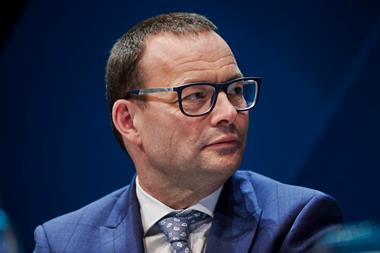The Department for Work and Pensions (DWP) has published the final funding and investment regulations which are set to come into force from April 2024.
The regulation sets out legislative detail of a new scheme funding regime designed to protect scheme members for the long term.
The new regime is the culmination of a much longer phase of policy development. It has been built on extensive discussion, engagement, and consultation by DWP and by The Pensions Regulator (TPR), starting from a Green Paper in 2017 to more recent productive finance consultations.
The DWP consulted on the draft regulations in July 2022, which set out the requirements for defined benefit (DB) schemes when determining their funding and investment strategy and statement of strategy.
TPR also consulted on the principles that would underpin a revised DB Funding Code of Practice published in March 2020 and a draft Code published in December 2022, which provides practical guidance on how trustees can comply with scheme funding requirements.
The DWP said it has worked closely with the regulator and has sought to “explicitly anchor the flexibilities” described in the draft code after the industry expressed their concerns.
It added that it has even gone further, by making additional changes to embed more scheme-specific flexibilities.
This includes making clearer the flexibilities that were intended within the draft regulations. For example, the regulations do not constrain actual investments and even mature schemes can invest in a wide range of assets.
It also provided assurance that the investment in the sustainable growth of sponsoring employers’ businesses is a matter to consider alongside the affordability principle.
The DWP also made it explicit that open schemes can take account of new entrants and future accrual when determining when a scheme will reach significant maturity.
It also made long-term planning and implementation easier and avoiding unnecessary administrative burdens by giving TPR for example, the flexibility to ask for less detailed information in some cases, depending on the circumstances of a scheme.
Fast Track and taking risk
The DWP also noted that 70-75% of schemes meet TPR’s proposed Fast Track investment stress parameter, meaning there is potential scope for higher risk taking if the trustees believe that is appropriate and in line with their fiduciary duties.
It said that higher levels of investment risk beyond Fast Track can be taken for those taking the bespoke approach where they can justify their approach.
It added that TPR will be reconsidering its Fast Track parameters in light of its consultation responses and the changes in market conditions since their original analysis was done.
This will be published alongside their final revised DB Funding Code.

Minister for pensions, Paul Maynard, said: “As the government presses on with its productive finance agenda, I have been encouraged by the helpful engagement we have had from stakeholders.
“It was never our intention to bear down on risk-taking across the board. Rather, it was to make funding standards clearer and to promote planning for the long term. By listening to stakeholders, we’ve learned that it is easy to inadvertently drive reckless prudence and inappropriate risk aversion.”
This is why, Maynard said the DWP made changes to make the regulations “explicitly more accommodating” of appropriate risk taking where it is supportive, and to increase the scope for scheme specific flexibility.
He said: “This will support trustees in reacting to changing circumstances and investing appropriately in the best interests of their members. The Regulations will embed existing good practice, by clearly defining how the metrics set out in the Pension Schemes Act 2021 will be applied. This will enable The Pensions Regulator to intervene more effectively where things go wrong.”
Maynard added that the regulations set a “clear framework” to support sponsors and trustees in getting it right.
“In a world where most schemes are closed it is more important than ever that sponsors and trustees are working together and planning for the long term. These regulations support them in doing that,” he said.
Read the digital edition of IPE’s latest magazine























